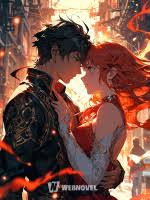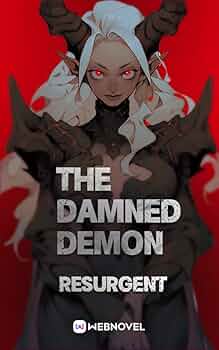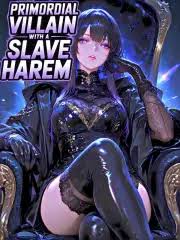The Story in 3 Sentences
A ridiculed youth named Howard, branded with the weakest F-rank talent during the global Awakening, secretly wields the godlike power of Supreme Synthesis to fuse mundane spells into world-shattering abilities like Dragonfire.
He masquerades as an ordinary magus while his hidden strength propels him from the academy’s basement to the apex of power, forging supreme artifacts and classes that defy the known limits of magic.
The narrative’s trajectory fractures when, after rapid ascension, Howard is thrust into an entirely different world and body, transforming the tight RPG progression into a sprawling, divisive kingdom-building saga that leaves his original companions and conflicts behind.
Why It Stands Out
1. The Alchemist of Power
Howard’s journey is a masterclass in hidden potential. His Supreme Synthesis isn’t just a cheat; it’s a philosophy of incremental, exponential growth. He takes the most basic, laughable spells—an F-rank Fireball—and through relentless, methodical combination, births serpents, pythons, and finally, the cataclysmic Dragonfire. It’s a satisfying, almost scientific progression where effort compounds into overwhelming force, turning the “weakest” into an unstoppable, silent architect of supreme power.
2. The Math That Broke the Magic
The novel’s most infamous hallmark is its systemic anarchy. The intricate web of stats, mana recovery rates, cooldown reductions, and experience points is woven with glaring inconsistencies. A 10% per second mana regen should grant near-infinite casting, yet it’s forgotten. Equipment buffs that halve cooldowns and costs are ignored in practice. The leveling curve is nonsensical, with bosses granting illogical experience. This isn’t a minor oversight; it’s a foundational crack that forces readers to abandon logic and embrace the power fantasy on pure, unadulterated faith.
3. The World That Split in Two
The story’s most dramatic and debated shift isn’t a battle, but a narrative rupture. After a breakneck pace of leveling and dungeon crawling in the Azure Sphere, the plot performs a hard pivot. Howard is unceremoniously transported to a new world, inhabiting a different body, and the focus shifts entirely to managing a mercenary group, political intrigue, and kingdom logistics. This isn’t an arc; it’s a genre transplant that abandons the core cast and the established magical RPG framework, leaving many fans feeling they were reading an entirely different, and far less compelling, book.
Characters That Leave a Mark
There’s Abby – the brilliant prodigy whose S-rank talent makes her a beacon of hope and a target for elite factions, her initial bond with Howard serving as the emotional anchor before the world-shift tears them apart.
You’ll meet Margrette, who stands as a pillar of kindness and loyalty in Howard’s otherwise harsh world, her unwavering support contrasting sharply with the brutal social hierarchy dictated by talent ranks.
And Whales? They’re the one who embodies the elite warrior archetype, a powerful figure whose presence underscores the high-stakes competition and the brutal reality that only the strongest survive in the age of Awakening.
The Flaws Fans Debate
The mathematical and systemic inconsistencies are not occasional errors but a persistent, immersion-breaking pattern that undermines the core RPG mechanics.
The abrupt and complete genre shift after Chapter 210, abandoning the original world, characters, and progression system for kingdom-building, is seen by many as a betrayal of the novel’s initial promise and a major pacing disaster.
The world-building is thin and reactive, existing only in Howard’s immediate vicinity, with little depth or history provided for the Azure Sphere or its myriad races and gods, making the stakes feel personal rather than epic.
Must-Experience Arcs
Ch. 1–50: The Weakest Magus Arc – Howard endures ridicule for his F-rank talent, secretly begins his synthesis journey, and turns Fireball into Fire Serpent, laying the groundwork for his hidden power while navigating the harsh social dynamics of the academy.
Ch. 100–200: The Dragonfire Forging Arc – Howard’s power escalates dramatically as he synthesizes his way to the S-rank Dragonfire spell, confronting increasingly dangerous threats and solidifying his reputation as a hidden powerhouse, culminating in his sudden, unexplained transportation to a new world.
Ch. 250–350: The Mercenary King Arc – Stranded in a foreign body and world, Howard adapts by founding and leading a mercenary group, shifting the narrative focus entirely from magical combat and synthesis to military strategy, resource management, and political maneuvering.
Final Verdict
Start Here If You Want:
A wildly satisfying, logic-defying power fantasy where the underdog doesn’t just rise, he rewrites the rules through sheer, systematic grinding.
A story that starts with a brilliant, addictive core concept of synthesis and exponential growth, offering pure, uncut progression catnip for the first 200 chapters.
A completed, massive webnovel with over 500 chapters to binge, promising a full journey from zero to godhood, even if the path takes a bizarre detour.
Study If You Love:
Deconstructing how systemic flaws can become a novel’s defining, almost charming, characteristic for a certain type of reader who prioritizes power escalation over internal consistency.
Analyzing the impact of a drastic, mid-narrative genre shift on reader retention and the contract between author and audience in serialized web fiction.
Exploring the “Weak to Strong” trope in its most extreme and mechanically inventive form, where the protagonist’s power is literally built from the ground up, piece by piece.
Avoid If You Prefer:
Tightly plotted stories with consistent internal logic and mechanics, where numbers and stats have tangible, reliable meaning.
Narratives that maintain a single, cohesive genre and setting, or where character arcs and relationships are given sustained development.
Stories where the world feels vast, lived-in, and deeply explored beyond the protagonist’s immediate needs and battles.





